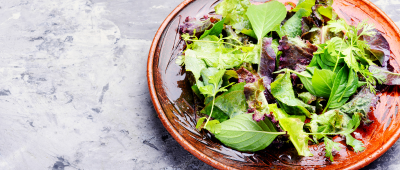As you age, your fertility rate decreases, which is why more women are deciding to freeze their healthy eggs while they are young and at their most fertile. However, you might have concerns about the process and if it can impact your ability to conceive when the time is right.
In this blog post, we will look at how egg freezing works, the impact age has on your fertility and if egg freezing affects your future fertility.
How does egg freezing work?
Egg freezing is a type of cryopreservation where your eggs are retrieved, frozen and stored for later use.
The first step you will go through is ovarian stimulation, using hormone injections to enhance your production of eggs in one menstrual cycle. The hormone injections are done every day for around 8–14 days in total.
During this step, your ovaries will be monitored through blood tests and ultrasounds so that the fertility expert can assess follicle growth, and when the egg will be mature enough to retrieve. When the follicles are prepared, the specialist can remove the eggs from your ovaries through a minor procedure.
After retrieving the eggs, they will be frozen using vitrification. This flash-freezing technique stops ice crystals from forming in the eggs and damaging them. The frozen eggs are then stored in liquid nitrogen tanks until needed.
When you’re ready to use your frozen eggs, the clinic must thaw them in a controlled environment. This slow thawing process ensures that the egg quality isn’t harmed. Your specialist can use your thawed eggs for in vitro fertilisation (IVF) and other fertility treatments.
The impact of age on fertility
Your fertility naturally starts to decline in your early 30s, with a more significant decline after age 35. A decrease in the quantity and quality of eggs produced in the ovaries causes the decline. As a result, fewer eggs are made and could potentially be at a higher risk of genetic abnormalities.
This natural decline in your fertility can make it challenging to conceive without the support of fertility treatments such as IVF. However, the likelihood of conceiving with IVF also decreases with age. With such a decline in your fertility when ageing, it’s unsurprising that more women are freezing their eggs at a young age.
Some women might not want to start a family in their peak fertility window. The many reasons include career aspirations, not having found a partner or not wanting to have children in their 20s. Freezing your eggs helps you to preserve your fertility when you are younger – giving you a higher chance of success when you are ready to start a family.
Does egg freezing affect future fertility?
No evidence currently exists to suggest that egg freezing impacts your future fertility or ability to conceive naturally.
However, a 2016 study of 1,171 women who had IVF using five eggs that were frozen when they were 35 or younger had a 15% chance of a live birth. The figures then increased to 61% when they froze 10 eggs and 85% when they froze 15 or more. It suggests freezing their eggs did not negatively impact their fertility rate.
It is important to note that the success of using frozen eggs to achieve pregnancy depends on various factors, including your age at the time of egg freezing, the number of eggs frozen and the quality of the eggs.
As you age, the quality and quantity of your eggs decrease, making it more challenging to achieve a successful pregnancy using frozen eggs in the future.
Egg freezing side effects
Although freezing your eggs is a relatively low-risk procedure, some potential side effects exist. These can include:
- Discomfort during retrieval – the pain is like menstrual cramps, but it is usually mild and easily managed with over-the-counter pain relief medication.
- Hormonal side effects – the medication used to stimulate your ovaries can cause hormonal side effects such as bloating, breast tenderness, mood changes and headaches. However, these are temporary and should subside once you’ve stopped taking the medication.
- Infection – all medical procedures where a needle is inserted have a small risk of infection. But this risk is minimised by using sterile equipment.
What to consider before freezing your eggs
When considering whether to freeze your eggs, you should think about different factors such as your age, overall health and financial situation, which can all impact your decision.
Age is a crucial factor to consider because the quality and quantity of eggs retrieved will differ depending on your age. The younger you are, the more likely you will have a higher reserve of high-quality eggs.
Your overall health is also important: if you have certain medical conditions or are taking specific medications, you might not be a suitable candidate. Make sure you discuss any pre-existing medical conditions and medication beforehand with your fertility consultant.
It’s worth considering the financial implications of egg freezing on your situation. You want to be sure you can afford the procedure and actively compare clinics to find the best price and fertility specialists.
Choosing the right clinic is vital too. At IVF Matters, our fertility specialists will work with you to tailor your fertility journey and be with you every step of the way.
Get in touch
If you have any concerns or questions about egg freezing and fertility preservation, don’t hesitate to book a free advisory call with IVF Matters.
Our fertility specialists will be there to support you on this journey and ensure that all of your questions are met with thorough answers.
Start your fertility journey with IVF Matters today.






